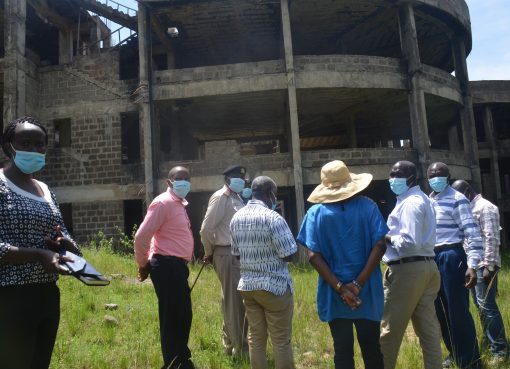Maragua Sub County hospital medical superintendent Stephen Ngigi has asked parents not to ignore any unusual swelling in the bodies of children so as to curb increased cases of bone cancer.
Ngigi noted that some swellings if ignored could pose as predisposing risk factors to the cancer of the bones which if diagnosed early can be treated and managed.
“We are used to cancer affecting people advanced in age but recently we are recording many cases of the disease in young children,” he added.
If not diagnosed early, the risk of the cancer spreading to the other organs is often high. Bone cancer starts as a swelling that may be ignored and I therefore urge parents and guardians not to ignore any unusual swelling in children,” Ngigi advised.
Medics encourage early screening of cancer as that is when treatment is likely to work best.
Ngigi revealed that in their care recently was a 10-year-old girl from Kiambu County who had her leg amputated as a result of bone cancer.
According to the girl’s mother, Lydiah Wairimu, the daughter, Sharon, fell while playing with her friends and her leg started swelling.
“Sharon fell while playing and I thought the swelling would subside on its own but in less than three months it had become a cancerous tumor prompting her right leg to be amputated,” she said tearfully.
Clearly, Sharon’s life has taken an unprecedented turn but even as she continues to recuperate at Maragua sub district hospital, her dream of becoming a doctor is still alive.
Meanwhile the family has requested well-wishers and people of good will to help Sharon acquire a prosthetic leg so that she can live a normal life.
Causes of bone tumors include abnormal healing of an injury and most commonly affects the pelvis or the long bones in the arms and legs.
In bone cancer, unusual cells grow out of control and end up destroying normal bone tissue and may start in the bone or spread there from other parts of the body also called metastasis.
Medical history by a physician coupled with physical examination and imaging tests like X-rays, CT scans, MRI scans, PET and bone scans are required to diagnose bone cancer.
By Florence Kinyua



